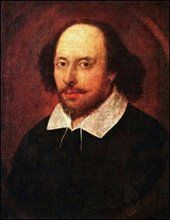
Schema: Quiz
We started with the movie – the scene where Falstaff is rejected my Henry and we viewed the scene where Pistol, Bardolph and Nym mourn Falstaff and leave for war. They, like Falstaff, represent Henry’s past and will be rejected as he grows as a king and leader. We also reviewed the motif of games: the tennis balls of the Dauphin; and Henry’s cruel, cat and mouse game with the traitors. This last event is a form of indirect characterization showing the morphing of his old playboy gamester into a dangerous, powerful gamester/king. We also discussed ‘dramatic irony,’ a concept you might want to remember
We also read about and viewed the French Court. I love the Exeter speeches, especially the one where he insults the Dauphin. Also, for characterization examples, keep in mind that the Dauphin says more about himself when he says Henry is weak than he does about Henry. The King is correct when he says ‘Think we King Henry strong” that is what Shakespeare wants us to think.
The most interesting form of indirect characterization takes place in front of the gates of Harfleur. We first see Henry in the role so the leader, the coach motivating his team. He pulls out all the stops with patriotism, images of tigers, telling them their fathers were ‘Alexander’s’ and that not to fight would dishonor their mothers. He is likable and human – a salesman. A different sort of salesman shows up at the gates the next scene. He is frightening and threatening. He also pulls out the stops saying his men will rape their daughters, kill the old fathers, and skewer the infants. He is no longer likable. For extra credit – to offset the bad quizzes of Friday – comment on if you think he would have gone through with this threat. To get credit do it by the end of I/I on Monday. Make sure you don’t use your real name. Use the names you used in the first comments - make sure I have your name written down.
Finally, notice how Henry always places blame for his actions on to others. He invades France after the Bishop takes the sin on his head and because of the Dauphin’s ‘mock.’ He is not responsible for all the horrors that might occur at Harfleur – it is the towns fault. He is a master at diverting blame. Keep this in mind as we determine the type of character he is.
We started with the movie – the scene where Falstaff is rejected my Henry and we viewed the scene where Pistol, Bardolph and Nym mourn Falstaff and leave for war. They, like Falstaff, represent Henry’s past and will be rejected as he grows as a king and leader. We also reviewed the motif of games: the tennis balls of the Dauphin; and Henry’s cruel, cat and mouse game with the traitors. This last event is a form of indirect characterization showing the morphing of his old playboy gamester into a dangerous, powerful gamester/king. We also discussed ‘dramatic irony,’ a concept you might want to remember
We also read about and viewed the French Court. I love the Exeter speeches, especially the one where he insults the Dauphin. Also, for characterization examples, keep in mind that the Dauphin says more about himself when he says Henry is weak than he does about Henry. The King is correct when he says ‘Think we King Henry strong” that is what Shakespeare wants us to think.
The most interesting form of indirect characterization takes place in front of the gates of Harfleur. We first see Henry in the role so the leader, the coach motivating his team. He pulls out all the stops with patriotism, images of tigers, telling them their fathers were ‘Alexander’s’ and that not to fight would dishonor their mothers. He is likable and human – a salesman. A different sort of salesman shows up at the gates the next scene. He is frightening and threatening. He also pulls out the stops saying his men will rape their daughters, kill the old fathers, and skewer the infants. He is no longer likable. For extra credit – to offset the bad quizzes of Friday – comment on if you think he would have gone through with this threat. To get credit do it by the end of I/I on Monday. Make sure you don’t use your real name. Use the names you used in the first comments - make sure I have your name written down.
Finally, notice how Henry always places blame for his actions on to others. He invades France after the Bishop takes the sin on his head and because of the Dauphin’s ‘mock.’ He is not responsible for all the horrors that might occur at Harfleur – it is the towns fault. He is a master at diverting blame. Keep this in mind as we determine the type of character he is.

2 comments:
To me henry is a more dynamic character
I enjoyed henry's speech to the French
Post a Comment